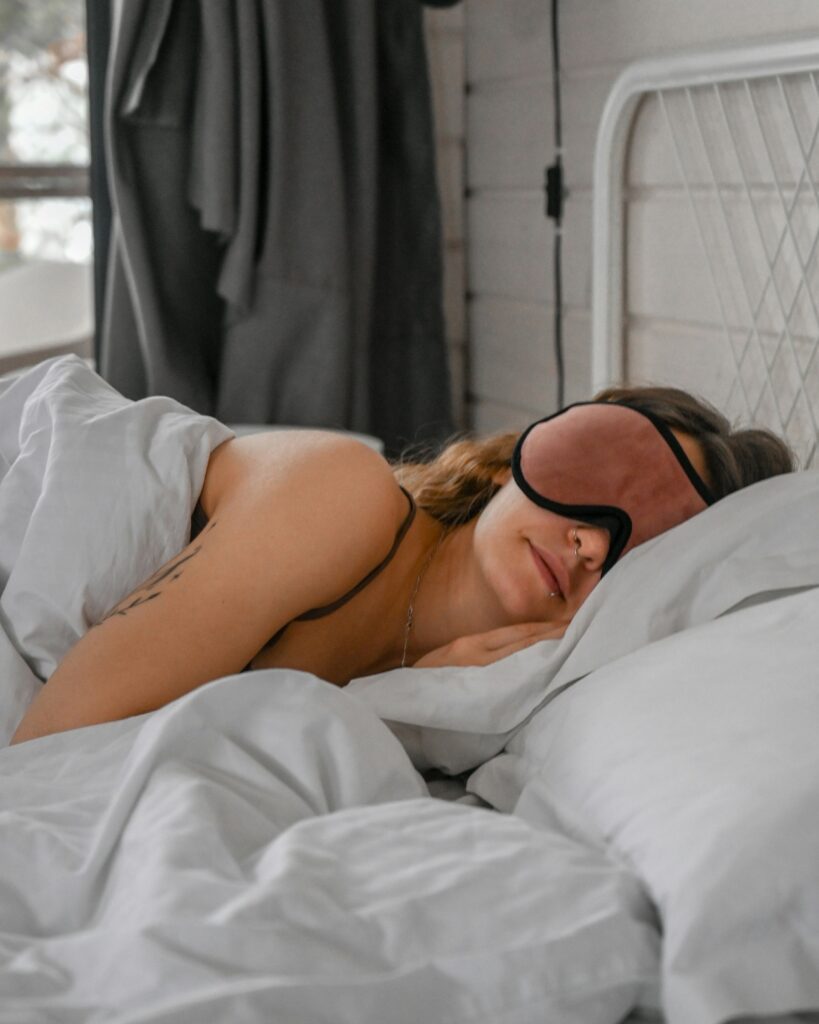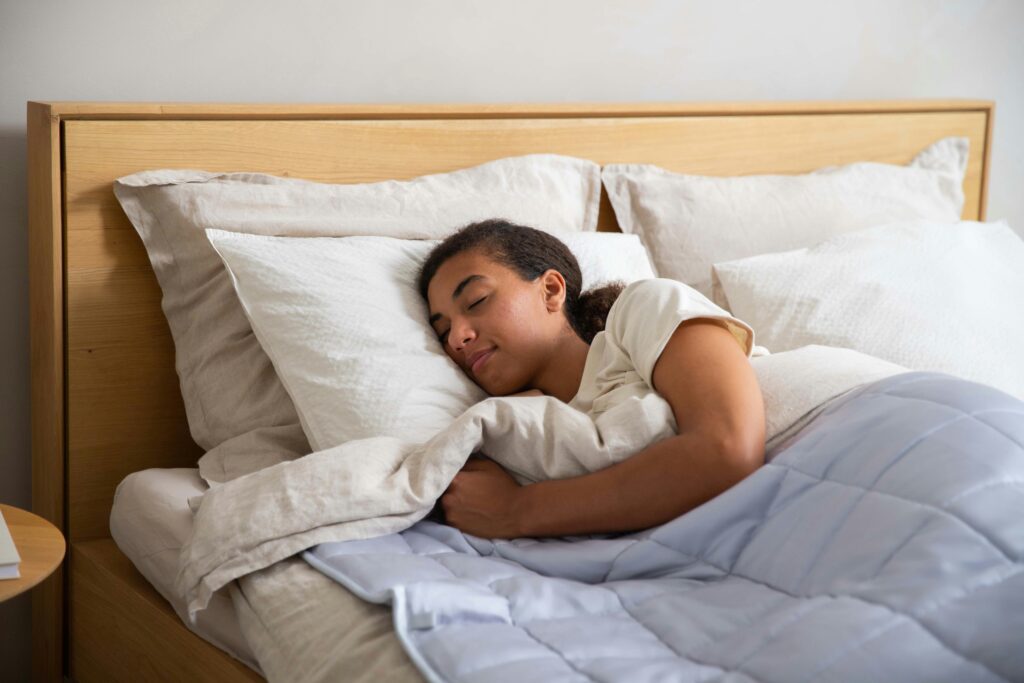
Unlock the secret to better sleep with online guides. This is not just another promise but a science-backed solution for restless nights and fatigued days. Imagine a world where sleep is no longer elusive but a restful haven that rejuvenates, preparing you for another productive day. The power to transform your sleep pattern is now available at your fingertips, through comprehensive and easily accessible online guides. These guides provide valuable insight into the science of sleep, demystifying the complexities and addressing the real challenges that hinder a good night’s sleep. Understanding the importance of sleep is not enough, implementing the knowledge is what brings about real change. And that’s exactly what these online guides offer – practical, easy to implement steps that can significantly improve your sleep quality. From tackling sleep disorders to optimizing sleep environments, these guides cover it all. Consider this your ticket to restful nights and energized days. The journey to unlocking the secret of better sleep is a process, and these online guides are here to facilitate that process. They are designed to be your companions, aiding in the transition to healthier sleep habits. So, get ready to delve into a wealth of information and practical advice that will revolutionize the way you sleep. Goodbye sleepless nights, hello to rejuvenating sleep and energized mornings. It’s time to unlock the secret to better sleep!
Understanding the Science of Sleep
Sleep is a vital part of our lives, crucial for maintaining physical and mental health. As an integral component of our well-being, it’s essential to understand the science behind it. The study of sleep is a complex field, involving disciplines such as biology, neuroscience, psychology, and more. The human sleep cycle comprises two primary stages: Rapid Eye Movement (REM) sleep and Non-Rapid Eye Movement (NREM) sleep. These stages repeat cyclically throughout the night. NREM sleep is further divided into three stages: N1, N2, and N3. Each of these stages has unique physiological characteristics and functions, from light sleep to deep sleep.
Role of REM and NREM Sleep
In the REM stage, dreaming commonly occurs, and the brain is active, exhibiting similar activity levels to those during wakefulness. This stage is crucial for memory consolidation and learning. On the other hand, NREM sleep is characterized by reduced brain activity and is important for physical recovery and growth. The deepest stage of NREM sleep, N3, is especially vital for tissue repair and immune function.
The Impact of Sleep Deprivation
Sleep is not merely a passive resting state—it’s an active, restorative process essential for physical health, cognitive function, and emotional well-being. When sleep is consistently inadequate—whether due to lifestyle choices, stress, or sleep disorders—the body and mind begin to exhibit serious negative consequences. Chronic sleep deprivation is now recognized as a public health issue, linked to an alarming array of physical, mental, and behavioral impairments.
Even short-term sleep loss can result in noticeable deficits in performance, mood, and alertness. Over time, these effects compound, contributing to increased disease risk, reduced life quality, and even premature death.
Effects on Cognitive Function
One of the most immediate and noticeable consequences of sleep deprivation is its impact on brain function. Sleep plays a vital role in consolidating memories, clearing neural waste, regulating emotional responses, and optimizing mental performance.
Key Cognitive Effects:
- 🧠 Impaired attention and concentration: Sleep-deprived individuals struggle to focus, maintain attention, and process information efficiently, leading to reduced productivity and higher error rates.
- 💭 Weakened memory formation: Sleep is critical for consolidating short-term memories into long-term storage. Without adequate rest, the brain struggles to encode and retrieve information, making learning and recall significantly more difficult.
- ⚖️ Poor decision-making and problem-solving: Sleep loss affects the prefrontal cortex, which governs rational thinking and executive function. As a result, people are more likely to make impulsive or risky decisions and have difficulty solving problems logically.
- 🎯 Reduced reaction time and alertness: A lack of sleep impairs motor coordination and slows neural processing speeds, increasing the risk of accidents—particularly when driving or operating machinery.
Over time, the cumulative effect of these deficits can erode academic performance, workplace efficiency, and overall quality of life.
Impact on Physical Health
Sleep deprivation takes a toll on nearly every system in the body, disrupting its ability to regulate hormones, repair tissues, balance metabolism, and defend against illness. Sleep is not just restful—it’s regenerative.
Consequences on Physical Health:
- ❤️ Cardiovascular strain: Insufficient sleep is associated with increased blood pressure, elevated heart rate, and inflammation, all of which contribute to higher risks of heart attack, stroke, and hypertension.
- 🍽️ Metabolic disruption and weight gain: Sleep affects hormones like leptin and ghrelin, which control hunger and satiety. Sleep-deprived individuals often experience increased appetite—especially for high-calorie foods—leading to weight gain and insulin resistance, which can progress to type 2 diabetes.
- 🛡️ Weakened immune function: Sleep is essential for the production of immune-regulating cytokines. Chronic sleep loss diminishes the body’s ability to fend off infections and increases susceptibility to illness, such as the common cold or flu.
- 🧬 Hormonal imbalance: Beyond metabolic hormones, sleep influences cortisol (the stress hormone), growth hormone, and reproductive hormones. Disruptions in these systems can affect mood, libido, fertility, and aging processes.
Even occasional sleep deprivation—such as staying up late a few nights a week—can have measurable negative effects. Long-term sleep loss, however, raises the risk of developing serious chronic diseases and diminishes the body’s ability to recover, regulate, and heal.
Unlocking Better Sleep with Online Guides
In the digital age, online guides have become a valuable resource for improving sleep hygiene. These guides often provide a wealth of information and practical strategies to optimize sleep, tailored to individual needs and circumstances.
Understanding Sleep Hygiene
Sleep hygiene refers to the habits and practices conducive to sleeping well on a consistent basis. Good sleep hygiene involves a variety of factors, including maintaining a regular sleep schedule, creating a conducive sleep environment, and managing lifestyle factors that may impact sleep, such as diet and exercise.
Personalized Sleep Guides
Online sleep guides can provide personalized advice based on individual sleep patterns and issues. These may include strategies for managing sleep disorders, recommendations for sleep-promoting activities, and guidance on creating a sleep-friendly environment.
Using Technology to Enhance Sleep
In today’s fast-paced, always-connected world, achieving high-quality, restorative sleep has become a challenge for many. However, the very technology often blamed for sleep disruption can also serve as a powerful tool for enhancing sleep hygiene and improving sleep quality. With the rise of wearable tech, intelligent home devices, and mobile wellness apps, individuals now have access to a wide range of resources designed to monitor, analyze, and optimize their sleep patterns.
These digital tools empower users to take a more informed and proactive approach to their sleep health by providing real-time data, personalized recommendations, and science-backed sleep interventions. Whether you’re aiming to fall asleep faster, reduce nighttime awakenings, or wake up feeling more refreshed, modern technology offers innovative ways to support your journey toward better sleep.
Smart Sleep Trackers
Smart sleep trackers are at the forefront of sleep-related technology. These devices use a combination of sensors—such as accelerometers, heart rate monitors, and temperature detectors—to gather detailed data about your sleep cycles and surrounding environment.
What They Track:
- Sleep stages (light, deep, and REM)
- Time spent asleep vs. awake
- Heart rate variability and respiratory rate
- Movement and restlessness
- Environmental factors, including ambient noise, room temperature, and lighting conditions
Types of Sleep Trackers:
- Wearables like smartwatches and fitness bands (e.g., Fitbit, Apple Watch, Oura Ring)
- Non-wearable devices placed under the mattress or on the nightstand
- Smart mattresses and pillows with built-in sensors and comfort optimization features
By collecting and analyzing this data, sleep trackers can:
- Identify behavioral or environmental patterns that negatively affect your rest.
- Help determine optimal sleep and wake times using circadian rhythm insights.
- Offer customized sleep coaching or daily tips to support long-term improvement.
For individuals with chronic sleep disturbances or those seeking to refine their sleep routine, smart trackers provide objective data that can be shared with healthcare providers or used to evaluate the effectiveness of lifestyle changes.
Apps and Online Platforms
Complementing physical devices are a wide variety of sleep-focused apps and digital platforms designed to support relaxation, regulate sleep cycles, and promote sleep education.
Key Features and Tools:
- Guided meditations and breathing exercises: Apps like Calm, Headspace, and Insight Timer offer sleep-specific meditations, body scans, and relaxation techniques proven to reduce stress and quiet the mind before bed.
- White noise and ambient soundscapes: Soothing background audio like rain, ocean waves, or forest sounds can mask disruptive noises and create a calming auditory environment.
- Sleep stories and audio narratives: These softly spoken bedtime tales are designed to gently guide the listener into sleep, especially helpful for those with racing thoughts or nighttime anxiety.
- Sleep education and habit tracking: Apps such as Sleep Cycle and Rise not only track sleep patterns but also provide insightful tips, circadian rhythm education, and personalized goals.
Benefits for Users:
- Empower users to create bedtime routines that support consistent sleep behavior.
- Help alleviate mild insomnia, jet lag, or stress-related restlessness.
- Provide non-pharmacological support for sleep, reducing dependence on sleep aids.
Many of these apps are customizable and user-friendly, making them suitable for people of all ages and sleep challenges—from busy professionals to teenagers and seniors.
The Path to Restful Nights and Energized Days

By understanding the science of sleep, acknowledging the consequences of sleep deprivation, and utilizing online guides and digital tools, you can unlock the secret to better sleep. Embracing good sleep hygiene and leveraging technology can pave the way to restful nights and energized days, ultimately enhancing overall well-being and productivity.
In an increasingly digital and fast-paced world, sleep is often the first necessity to be sacrificed—yet it is one of the most vital elements of overall health and well-being. From enhancing cognitive function and emotional resilience to supporting immune defense and metabolic balance, sleep serves as a cornerstone for a healthy life. The consequences of sleep deprivation extend far beyond temporary fatigue; chronic lack of rest can lead to serious health conditions, including heart disease, obesity, diabetes, and mental health disorders such as anxiety and depression.
Fortunately, modern technology is offering innovative ways to reclaim quality sleep. Through wearable trackers, smart home devices, and mobile apps, individuals can gain meaningful insights into their sleep habits and make informed changes to improve rest. By embracing data-driven approaches, creating consistent bedtime routines, and fostering an environment conducive to sleep, people of all ages can take proactive steps toward better sleep hygiene.
Ultimately, achieving restorative sleep is not a luxury—it is a necessity. Prioritizing sleep means prioritizing physical vitality, mental clarity, and long-term wellness. With awareness, discipline, and the right tools, anyone can transform their nightly rest into a powerful foundation for daily performance and lifelong health. Now is the time to take sleep seriously.
Final Words
Remember, sleep is not a luxury, but a necessity. By prioritizing sleep and making informed decisions about sleep habits, you can significantly improve your health, mood, and daily functioning. The journey to better sleep may require some effort and adjustments, but the rewards are worth it. As the saying goes, “Sleep is the best meditation”. So, start your journey towards better sleep today, and unlock the door to improved health and quality of life.
Conclusion
In summary, the secret to better sleep lies within your grasp through the accessibility of online guides. These comprehensive resources provide a plethora of information, from understanding the complex science of sleep to practical tips for achieving a sound night’s rest. By incorporating these insights into your daily routine, you’re setting the stage for improved sleep quality and, in turn, energized and productive days. The transformative power of sleep shouldn’t be underestimated. With restful sleep, we can expect not only heightened alertness and mood but also enhanced overall health. As such, investing time and effort in learning and applying the principles of good sleep hygiene can significantly boost our well-being. Remember, every individual is unique, and what works for others might not work for you. Be patient and give different strategies a try. With these online guides as your handy tool, unlocking the secret to better sleep is no longer a distant dream. It’s time to reclaim your nights and invigorate your days. Better sleep is just a click away! 🌙💤🔓



